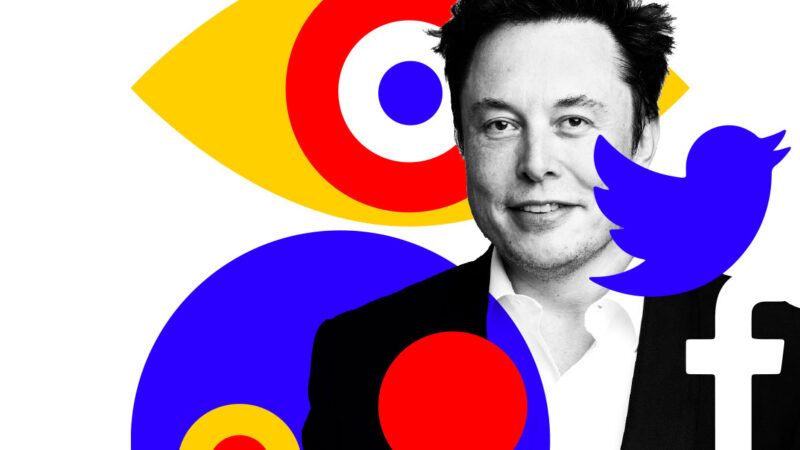Government Keeps Meddling With Private Company Decisions
In the Twitter Files, every conversation with a government official contains the same warning: You can do it happily, or we’ll make you.

When I lollygagged or dragged my feet as a small child, my mom used to say, "You have two choices: You can do it happily, or I can make you." Even as a preschooler, I understood that wasn't a choice at all, only a warning about how unpleasant things could get for me if I failed to comply.
Employees at Twitter—and Facebook—chose to censor, suppress, and undermine dissenting viewpoints happily. But they were always facing a false choice. The public has now had the chance to peek at thousands of communications between government officials of various stripes and employees of Twitter (the so-called Twitter Files), released by Elon Musk after his acquisition of the social media company. The messages reveal the ways the lines between public and private were consciously eroded during the COVID-19 era in an attempt to eradicate "misinformation," much of which turned out to be true and all of which was First Amendment–protected speech.
The danger of this state of affairs is that eventually even friends of free association and free speech begin to wonder if the label "private company" still applies to Facebook or Twitter when the tendrils of the federal bureaucracy are so intimately entangled in the firm's inner workings. But this temptation should be resisted. Government encroachment into what should be purely private corporate decision making doesn't void the rights of private entities, no matter how infuriating the outcome.
What's more, this line of argument creates dangerous incentives. In a scenario where private companies lose protections for their own speech and for the speech of their customers to government censors precisely because the feds are meddling in their affairs, that gives every reason for the feds to meddle more and for the companies to throw up their hands. This backdoor nationalization quickly brings about the unsavory state of affairs already found in so many authoritarian countries, where citizens understand that their private activities are fully exposed to the eyes of state actors and subject to their control, and simply behave accordingly—watching what they say and to whom they say it.
This also creates a self-perpetuating cycle, in which the only folks willing to work at social media companies in soft-censor roles will be people already aligned with the powers that be—or flexible enough not to mind bending over backward.
Still, neither the employees nor the companies themselves are the villains in this story. It would be an extraordinary act of bravery, and perhaps foolishness, to defy repeated requests from the state with the implicit threat those requests carry. The villains are the state actors, who—knowing full well the limits on their power—sought workarounds that violated the spirit of the law, and perhaps its letter.
The phenomenon is bipartisan. Once one side debuts a new technique for exerting control, the other side can't help but avail itself when the opportunity arises. So former President Donald Trump's chief technology officer queried Twitter about suppressing "misinformation" about "runs on grocery stores"—during a period when there were runs on grocery stores. And President Joe Biden's FBI flagged accounts making jokes about the election, resulting in bans for "misinformation."
In our cover story, Reason reveals what you might call the Facebook Files: secret internal communications containing proof of what you'd be a fool not to suspect—that the Centers for Disease Control and Prevention and other government bureaucrats flagged, alerted, and tattled on huge numbers of posts to Facebook as well. Here, as in the Twitter Files, there are no outright threats, but the undercurrent runs through even the most pleasant and collegial exchanges. Every conversation with a government official contains that same warning: You can do it happily, or we'll make you.
